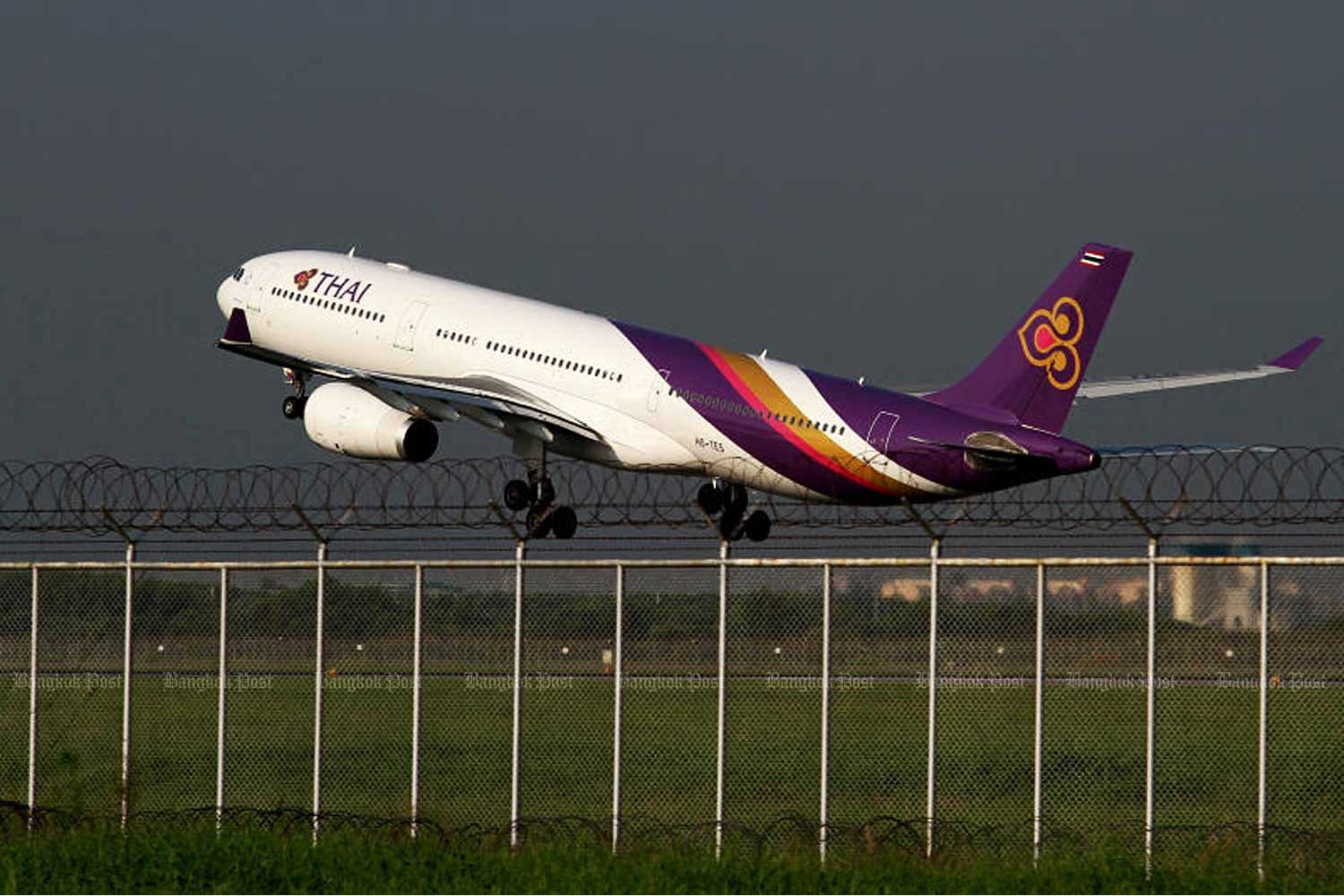
The Thai Airways International (THAI) workers' union has attacked the airline's plan to buy or lease 38 new aircraft, saying it would put further strain on the company that is already suffering under crippling debt.
Union president, Damrong Waikanee, on Monday said the planned purchase or leasing of new planes, estimated to cost 130 billion baht, would add insult to financial injury for the national carrier which is facing accumulated debt exceeding 100 billion baht.
Details of the large-scale procurement plan were never explained to employees, particularly those at operational levels, he added.
Staff were eager to know how the investment would improve the company's balance sheet, for example on what routes the new planes would be deployed and what criteria would be adopted to evaluate the investment worthiness of the proposed aircraft purchase.
THAI president Sumeth Damrongchaitham said in May the aircraft acquisition plan was being put to the cabinet for approval.
He said the planes to be added to the airline's fleet would be a mix of wide- and narrow-bodied models.
There would be two phases. The first stage is for 31 planes to replace old aircraft within five years, and the second would be for seven other aircraft, Mr Sumeth said.
Mr Damrong said THAI should have learned a lesson after it bought a certain type of aircraft which was a fuel-guzzler and not fully utilised. The planes were subsequently grounded and had to be sold off at a heavy discount.
The union president added the airline's rehabilitation programme, which includes cutting back on internal expenses, was not going well.
The move was impractical and "almost impossible to implement" since the company is experiencing staff shortages in many departments, particularly cabin attendants and ground staff, while a hiring freeze remains in effect.
Mr Damrong said at the same time, staff have had to work harder and the national carrier has had to pay for increased overtime.
He said it was puzzling how the company could achieve revenue growth when there are not enough staff.
